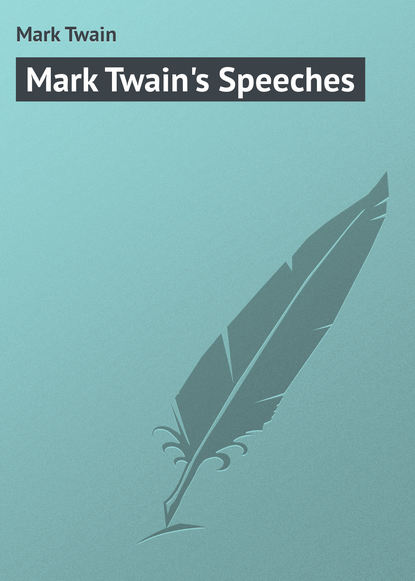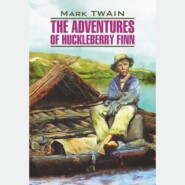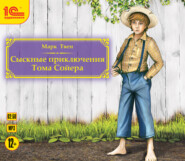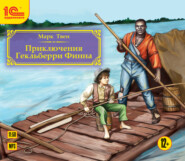По всем вопросам обращайтесь на: info@litportal.ru
(©) 2003-2025.
✖
Mark Twain's Speeches
Настройки чтения
Размер шрифта
Высота строк
Поля
We walked home that way, sixteen blocks, with a retinue a mile long: Every time we passed a lamp-post, death gripped one at the throat. But we, got home – and I had on white socks.
If I live to be nine hundred and ninety-nine years old I don’t suppose I could ever forget that walk. I, remember, it about as keenly as the chagrin I suffered on another occasion.
At one time in our domestic history we had a colored butler who had a failing. He could never remember to ask people who came to the door to state their business. So I used to suffer a good many calls unnecessarily.
One morning when I was especially busy he brought me a card engraved with a name I did not know. So I said, “What does he wish to see me for?” and Sylvester said, “Ah couldn’t ask him, sah; he, wuz a genlinun.” “Return instantly,” I thundered, “and inquire his mission. Ask him what’s his game.” Well, Sylvester returned with the announcement that he had lightning-rods to sell. “Indeed,” said I, “things are coming to a fine pass when lightning-rod agents send up engraved cards.” “He has pictures,” added Sylvester. “Pictures, indeed! He maybe peddling etchings. Has he a Russia leather case?” But Sylvester was too frightened to remember. I said; “I am going down to make it hot for that upstart!”
I went down the stairs, working up my temper all the way. When I got to the parlor I was in a fine frenzy concealed beneath a veneer of frigid courtesy. And when I looked in the door, sure enough he had a Russia leather case in his hand. But I didn’t happen to notice that it was our Russia leather case.
And if you’d believe me, that man was sitting with a whole gallery of etchings spread out before him. But I didn’t happen to notice that they were our etchings, spread out by some member of my family for some unguessed purpose.
Very curtly I asked the gentleman his business. With a surprised, timid manner he faltered that he had met my wife and daughter at Onteora, and they had asked him to call. Fine lie, I thought, and I froze him.
He seemed to be kind of non-plussed, and sat there fingering the etchings in the case until I told him he needn’t bother, because we had those. That pleased him so much that he leaned over, in an embarrassed way, to pick up another from the floor. But I stopped him. I said, “We’ve got that, too.” He seemed pitifully amazed, but I was congratulating myself on my great success.
Finally the gentleman asked where Mr. Winton lived; he’d met him in the mountains, too. So I said I’d show him gladly. And I did on the spot. And when he was gone I felt queer, because there were all his etchings spread out on the floor.
Well, my wife came in and asked me who had been in. I showed her the card, and told her all exultantly. To my dismay she nearly fainted. She told me he had been a most kind friend to them in the country, and had forgotten to tell me that he was expected our way. And she pushed me out of the door, and commanded me to get over to the Wintons in a hurry and get him back.
I came into the drawing-room, where Mrs. Winton was sitting up very stiff in a chair, beating me at my own game. Well, I began, to put another light on things. Before many seconds Mrs. Winton saw it was time to change her temperature. In five minutes I had asked the man to luncheon, and she to dinner, and so on.
We made that fellow change his trip and stay a week, and we gave him the time of his life. Why, I don’t believe we let him get sober the whole time.
I trust that you will carry away some good thought from these lessons I have given you, and that the memory of them will inspire you to higher things, and elevate you to plans far above the old – and – and—
And I tell you one thing, young ladies: I’ve had a better time with you to-day than with that peach fifty-three years ago.
Queen Victoria
Address to the British schools and universities club, at Delmonico’s, Monday, may 25, in honor of Queen Victoria’s birthday Mr. Clemens told the story of his duel with a rival editor: how he practised firing at a barn door and failed to hit it, but a friend of his took off the head of a little bird at thirty-five yards and attributed the shot to Mark twain. The duel did not take place. Mr. Clemens continued as follows:
It also happened that I was the means of stopping duelling in Nevada, for a law was passed sending all duellists to jail for two years, and the Governor, hearing of my marksmanship, said that if he got me I should go to prison for the full term. That’s why I left Nevada, and I have not been there since.
You do me a high honor, indeed, in selecting me to speak of my country in this commemoration of the birthday of that noble lady whose life was consecrated to the virtues and the humanities and to the promotion of lofty ideals, and was a model upon which many a humbler life was formed and made beautiful while she lived, and upon which many such lives will still be formed in the generations that are to come – a life which finds its just image in the star which falls out of its place in the sky and out of existence, but whose light still streams with unfaded lustre across the abysses of space long after its fires have been extinguished at their source.
As a woman the Queen was all that the most exacting standards could require. As a far-reaching and effective beneficent moral force she had no peer in her time among either, monarchs or commoners. As a monarch she was without reproach in her great office. We may not venture, perhaps, to say so sweeping a thing as this in cold blood about any monarch that preceded her upon either her own throne or upon any other. It is a colossal eulogy, but it is justified.
In those qualities of the heart which beget affection in all sorts and conditions of men she was rich, surprisingly rich, and for this she will still be remembered and revered in the far-off ages when the political glories of her reign shall have faded from vital history and fallen to a place in that scrap-heap of unverifiable odds and ends which we call tradition. Which is to say, in briefer phrase, that her name will live always. And with it her character – a fame rare in the history of thrones, dominions, principalities, and powers, since it will not rest upon harvested selfish and sordid ambitions, but upon love, earned and freely vouchsafed. She mended broken hearts where she could, but she broke none.
What she did for us in America in our time of storm and stress we shall not forget, and whenever we call it to mind we shall always remember the wise and righteous mind that guided her in it and sustained and supported her – Prince Albert’s. We need not talk any idle talk here to-night about either possible or impossible war between the two countries; there will be no war while we remain sane and the son of Victoria and Albert sits upon the throne. In conclusion, I believe I may justly claim to utter the voice of my country in saying that we hold him in deep honor, and also in cordially wishing him a long life and a happy reign.
Joan Of Arc
Address at the dinner of the society of illustrators, given at the Aldine association club, December 22, 1905
Just before Mr. Clemens made his speech, a young woman attired as Joan of Arc, with a page bearing her flag of battle, courtesied reverently and tendered Mr. Clemens a laurel wreath on a satin pillow. He tried to speak, but his voice failed from excess of emotion. “I thank you!” he finally exclaimed, and, pulling him self together, he began his speech.
Now there is an illustration [pointing to the retreating Joan of Arc]. That is exactly what I wanted – precisely what I wanted – when I was describing to myself Joan of Arc, after studying her history and her character for twelve years diligently.
That was the product – not the conventional Joan of Arc. Wherever you find the conventional Joan of Arc in history she is an offence to anybody who knows the story of that wonderful girl.
Why, she was – she was almost supreme in several details. She had a marvellous intellect; she had a great heart, had a noble spirit, was absolutely pure in her character, her feeling, her language, her words, her everything – she was only eighteen years old.
Now put that heart into such a breast – eighteen years old – and give it that masterly intellect which showed in the face, and furnish it with that almost god-like spirit, and what are you going to have? The conventional Joan of Arc? Not by any means. That is impossible. I cannot comprehend any such thing as that.
You must have a creature like that young and fair and beautiful girl we just saw. And her spirit must look out of the eyes. The figure should be – the figure should be in harmony with all that, but, oh, what we get in the conventional picture, and it is always the conventional picture!
I hope you will allow me to say that your guild, when you take the conventional, you have got it at second-hand. Certainly, if you had studied and studied, then you might have something else as a result, but when you have the common convention you stick to that.
You cannot prevail upon the artist to do it; he always gives you a Joan of Arc – that lovely creature that started a great career at thirteen, but whose greatness arrived when she was eighteen; and merely, because she was a girl he can not see the divinity in her, and so he paints a peasant, a coarse and lubberly figure – the figure of a cotton-bale, and he clothes that in the coarsest raiment of the peasant region just like a fish woman, her hair cropped short like a Russian peasant, and that face of hers, which should be beautiful and which should radiate all the glories which are in the spirit and in her heart that expression in that face is always just the fixed expression of a ham.
But now Mr. Beard has intimated a moment ago, and so has Sir Purdon-Clarke also, that the artist, the illustrator, does not often get the idea of the man whose book he is illustrating. Here is a very remarkable instance of the other thing in Mr. Beard, who illustrated a book of mine. You may never have heard of it. I will tell you about it now – A Yankee in King Arthur’s Court.
Now, Beard got everything that I put into that book and a little more besides. Those pictures of Beard’s in that book – oh, from the first page to the last is one vast sardonic laugh at the trivialities, the servilities of our poor human race, and also at the professions and the insolence of priest-craft and king-craft – those creatures that make slaves of themselves and have not the manliness to shake it off. Beard put it all in that book. I meant it to be there. I put a lot of it there and Beard put the rest.
What publisher of mine in Hartford had an eye for the pennies, and he saved them. He did not waste any on the illustrations. He had a very good artist – Williams – who had never taken a lesson in drawing. Everything he did was original. The publisher hired the cheapest wood-engraver he could find, and in my early books you can see a trace of that. You can see that if Williams had had a chance he would have made some very good pictures. He had a good heart and good intentions.
I had a character in the first book he illustrated – The Innocents Abroad. That was a boy seventeen or eighteen years old – Jack Van Nostrand – a New York boy, who, to my mind, was a very remarkable creature. He and I tried to get Williams to understand that boy, and make a picture of Jack that would be worthy of Jack.
Jack was a most singular combination. He was born and reared in New York here. He was as delicate in his feelings, as clean and pure and refined in his feelings as any lovely girl that ever was, but whenever he expressed a feeling he did it in Bowery slang, and it was a most curious combination – that delicacy of his and that apparent coarseness. There was no coarseness inside of Jack at all, and Jack, in the course of seventeen or eighteen years, had acquired a capital of ignorance that was marvellous – ignorance of various things, not of all things. For instance, he did not know anything about the Bible. He had never been in Sunday-school. Jack got more out of the Holy Land than anybody else, because the others knew what they were expecting, but it was a land of surprises to him.
I said in the book that we found him watching a turtle on a log, stoning that turtle, and he was stoning that turtle because he had read that “The song of the turtle was heard in the land,” and this turtle wouldn’t sing. It sounded absurd, but it was charged on Jack as a fact, and as he went along through that country he had a proper foil in an old rebel colonel, who was superintendent and head engineer in a large Sunday-school in Wheeling, West Virginia. That man was full of enthusiasm wherever he went, and would stand and deliver himself of speeches, and Jack would listen to those speeches of the colonel and wonder.
Jack had made a trip as a child almost across this continent in the first overland stage-coach. That man’s name who ran that line of stages – well, I declare that name is gone. Well, names will go.
Halliday – ah, that’s the name – Ben Halliday, your uncle [turning to Mr. Carnegie]. That was the fellow – Ben Halliday – and Jack was full of admiration at the prodigious speed that that line of stages made – and it was good speed – one hundred and twenty-five miles a day, going day and night, and it was the event of Jack’s life, and there at the Fords of the Jordan the colonel was inspired to a speech (he was always making a speech), so he called us up to him. He called up five sinners and three saints. It has been only lately that Mr. Carnegie beatified me. And he said: “Here are the Fords of the Jordan – a monumental place. At this very point, when Moses brought the children of Israel through – he brought the children of Israel from Egypt through the desert you see them – he guarded them through that desert patiently, patiently during forty years, and brought them to this spot safe and sound. There you see – there is the scene of what Moses did.”
And Jack said: “Moses who?”
“Oh,” he says, “Jack, you ought not to ask that! Moses, the great law-giver! Moses, the great patriot! Moses, the great warrior! Moses, the great guide, who, as I tell you, brought these people through these three hundred miles of sand in forty years, and landed there safe and sound.”
Jack said: “There’s nothin’ in that three hundred miles in forty years. Ben Halliday would have snaked ’em through in thirty – six hours.”
Well, I was speaking of Jack’s innocence, and it was beautiful. Jack was not ignorant on all subjects. That boy was a deep student in the history of Anglo-Saxon liberty, and he was a patriot all the way through to the marrow. There was a subject that interested him all the time. Other subjects were of no concern to Jack, but that quaint, inscrutable innocence of his I could not get Williams to put into the picture.
Yes, Williams wanted to do it. He said: “I will make him as innocent as a virgin.” He thought a moment, and then said, “I will make him as innocent as an unborn virgin;” which covered the ground.
I was reminded of Jack because I came across a letter to-day which is over thirty years old that Jack wrote. Jack was doomed to consumption. He was very long and slim, poor creature; and in a year or two after he got back from that excursion, to the Holy Land he went on a ride on horseback through Colorado, and he did not last but a year or two.
He wrote this letter, not to me, but to a friend of mine; and he said: “I have ridden horseback”—this was three years after—“I hate ridden horseback four hundred miles through a desert country where you never see anything but cattle now and then, and now and then a cattle station – ten miles apart, twenty miles apart. Now you tell Clemens that in all that stretch of four hundred miles I have seen only two books – the Bible and ‘Innocents Abroad’. Tell Clemens the Bible was in a very good condition.”
I say that he had studied, and he had, the real Saxon liberty, the acquirement of our liberty, and Jack used to repeat some verses – I don’t know where they came from, but I thought of them to-day when I saw that letter – that that boy could have been talking of himself in those quoted lines from that unknown poet:
“For he had sat at Sidney’s feet
And walked with him in plain apart,
And through the centuries heard the beat
Of Freedom’s march through Cromwell’s heart.”

















